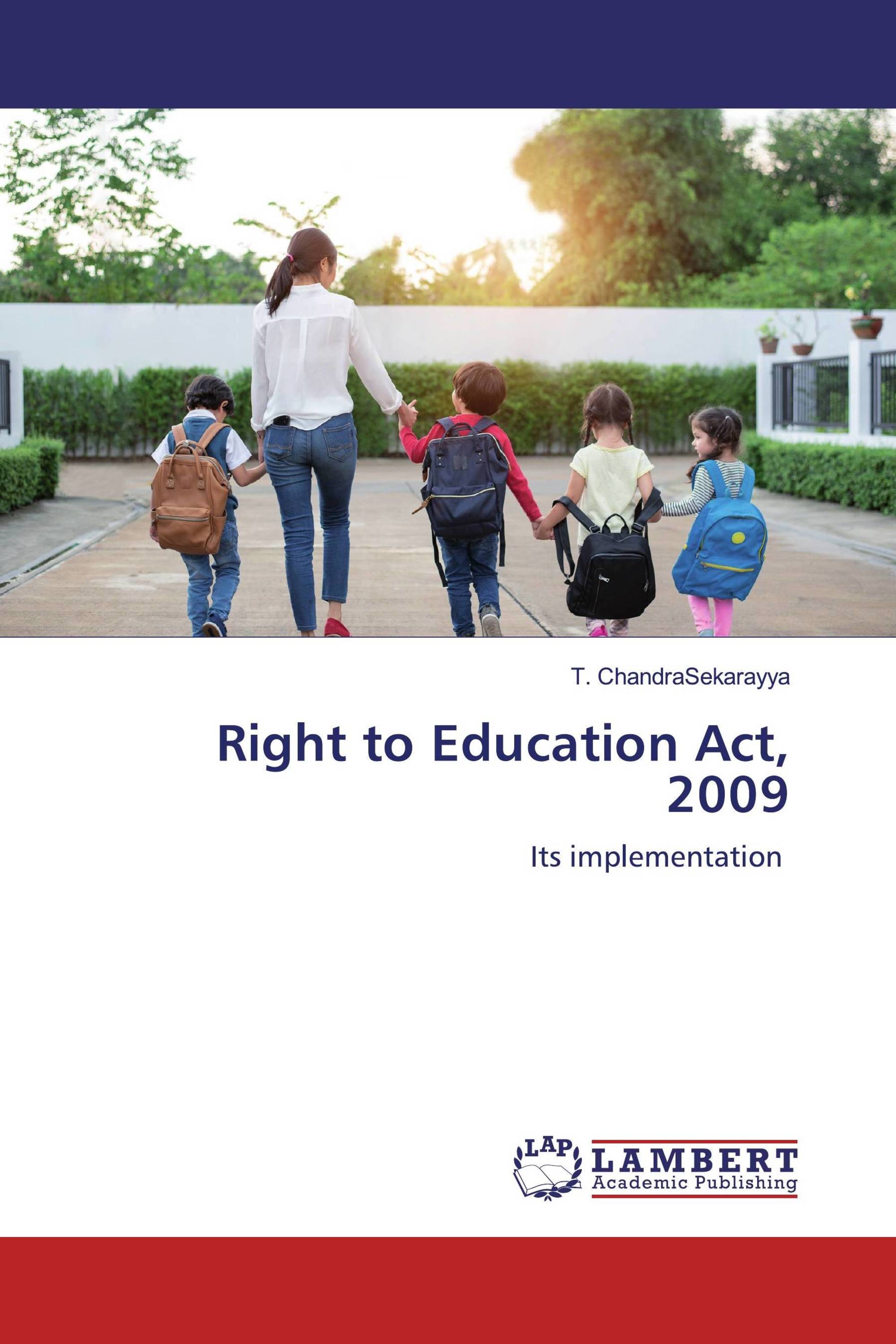Right to Education Act, 2009
Its implementation
LAP Lambert Academic Publishing ( 2019-12-04 )
€ 71,90
Education reduces poverty, decreases social inequalities, empowers women and helps each individual to reach their full potential. It also brings significant economic returns for a country and helps societies to achieve lasting peace and sustainable development. Education is key to achieving all other human rights. The Right to Education Act 2009, also known as the RTE Act 2009, was enacted by the Parliament of India on 4 August 2009. It describes modalities of the importance of free and compulsory education for children aged between 6-14 years in India under Article 21 (A) of the Constitution of India. This act came into effect on 1 April 2010 and made India one of the 135 countries to have made education a fundamental right for every child. It prescribes minimum norms for elementary schools, prohibits unrecognized schools from practice and advocates against donation fees and interviews of children at the time of admission.Educational challenges have been prevalent at both the centre and states for many years in India. The present study aims at studying the implementation RTE Act.
Book Details: |
|
|
ISBN-13: |
978-620-0-47783-5 |
|
ISBN-10: |
6200477833 |
|
EAN: |
9786200477835 |
|
Book language: |
English |
|
By (author) : |
T. ChandraSekarayya |
|
Number of pages: |
184 |
|
Published on: |
2019-12-04 |
|
Category: |
Education system |




